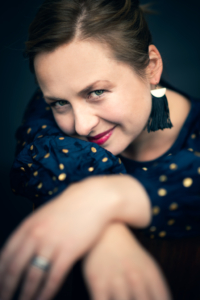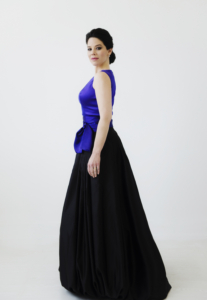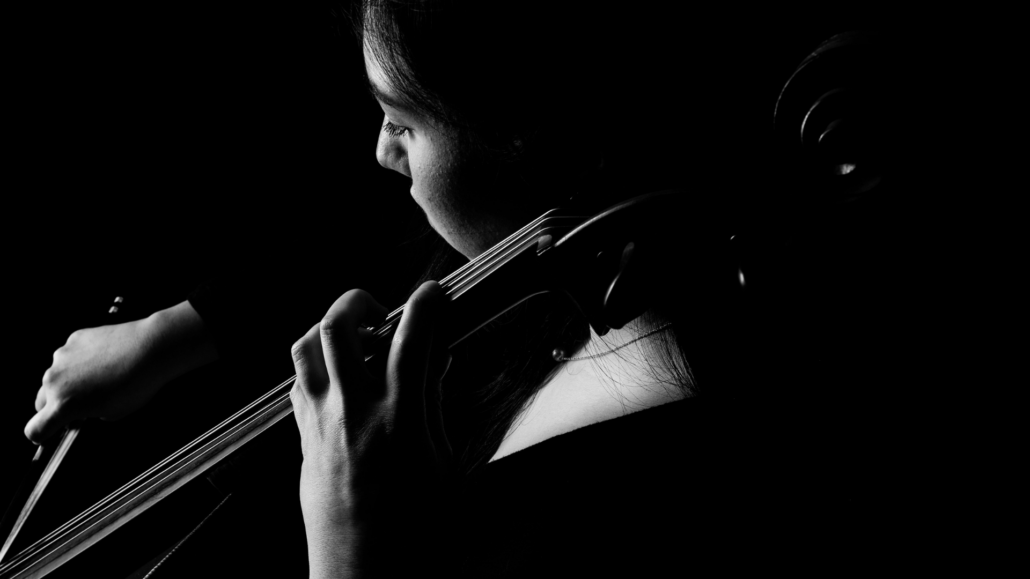 Holly Mathieson, conductor
Holly Mathieson, conductor
New Zealand-born Holly Mathieson is the Music Director of Symphony Nova Scotia in Halifax, Canada. She is also Co-Artistic Director of the Nevis Ensemble and was recently appointed to the newly created role of Artist in Association at English Touring Opera. Her previous appointments have included Assistant Conductor at the Royal Scottish National Orchestra and Resident Conductor within the National Youth Orchestra of Scotland Orchestras. With her passionate communication skills, crystalline technique and collaborative approach, Holly Mathieson has won plaudits in all forms of music direction from opera, ballet to full scale symphonic programmes.
The 2022/23 season marks the third year of her Music Directorship with Symphony Nova Scotia. Further highlights are her debuts with Victoria Symphony and Kitchener-Waterloo Symphony Orchestra in Canada as well as a return visit to the Royal Danish Ballet for Tchaikovsky’s The Nutcracker.
Highlights of past seasons are her debut with Prague Radio Symphony Orchestra as well as debuts with New Zealand Symphony Orchestra and Christchurch Symphony Orchestra, including return visits to Auckland Philharmonia Orchestra. Recent debuts include Scottish Opera Orchestra, English Touring Opera (Mozart’s Così fan tutte), Opera North (Song of our Heartland, a new work by Will Todd) and New Zealand Opera, conducting Britten’s Turn of the Screw. Over the past years Holly has worked with almost all key UK orchestras, including the London Symphony Orchestra, Royal Philharmonic, City of Birmingham Symphony, London Philharmonic, BBC Scottish Symphony Orchestra, BBC Philharmonic Orchestra, BBC Concert Orchestra and BBC National Orchestra of Wales, the Royal Liverpool Philharmonic Orchestra, Ulster Orchestra as well as return visits to the Scottish Chamber and Salomon orchestras, Southbank Sinfonia, Royal Northern Sinfonia’s Young Sinfonia, Red Note Ensemble, Royal College of Music Philharmonic Orchestra and the Royal Northern College of Music Symphony Orchestra.
Holly’s debut CD with Decca featuring Clara Schumann’s Piano Concerto with Isata Kanneh- Mason and the Royal Liverpool Philharmonic Orchestra was released in July 2019 and immediately landed on the No.1 spot in the UK Classical charts. In 2018 she became Co-Artistic Director of the innovative Nevis Ensemble, which is founded on the maxim that “music is for everyone, everywhere”, and aims to take music out of the concert hall, and into isolated communities. In the ensuing two years, the orchestra gave 170 free performances to around 25,500 people all across Scotland, including an extensive tour of the Outer Hebrides.
Toward the beginning of her conducting career she was chosen as one of only four young conductors from around the world to participate in the Interaktion Dirigentenwerkstatt des Kritischen Orchesters with players from the Berlin Philharmonic and other top-tiered German orchestras. She has worked with, and learned at the side of, many esteemed conductors and counts the following among her mentors: Marin Alsop, Esa-Pekka Salonen, Christoph von Dohnányi, Peter Oundjian, Donald Runnicles, Thomas Søndergård, and Garry Walker.
Holly is based in Glasgow where she previously held the prestigious Leverhulme Fellowship at the Royal Conservatoire of Scotland. She holds a PhD in Music Iconography and in 2016, she was named as one of New Zealand’s Top 50 Women of Achievement.
 Allyson McHardy, mezzo‐soprano
Allyson McHardy, mezzo‐soprano
A unique vocal colour and commanding stage presence are the hallmarks of performances by mezzo‐soprano Allyson McHardy. Hailed by Joshua Kosman of the San Francisco Chronicle as “a singer of enormous imagination and versatility”, she has appeared with the Paris Opera, Festival d’Aix‐en‐Provence, Chicago Symphony, Toronto Symphony, Glyndebourne Festival, San Francisco Opera, Boston Symphony, Canadian Opera Company, Warsaw Philharmonic and Théâtre du Capitole, Toulouse. Adam Fischer, Seiji Ozawa, Jeremy Rohrer, Kent Nagano, Emmanuelle Haim, Bernard Labadie, Ludovic Morlot, Carlos Kalmar and Jesus Lopez Cobos are among the conductors with whom she has collaborated for performances of works such as L’enfant et les sortileges, La clemenza di Tito, Das Rheingold, Dream of Gerontius and Messiah.
Ms. McHardy bookends her coming season with performances at Maison Symphonique for Orchestra symphonique de Montréal in Mahler’s Symphony No. 8 and later, Beethoven’s Symphony No. 9, both with Nagano on the podium. She will be heard with the Toronto Symphony in Ryan’s Requiem, in Kansas City for Messiah with Matthew Halls conducting and will be featured this season by the Canadian Opera Company as Smeton in Anna Bolena.
A native of the province of Ontario, Ms. McHardy’s career is a carefully curated balance of opera and concert repertoire that moves from Donizetti to Handel, from Heggie to Mahler.
During the 2016 – 2017 season she made her Beijing Festival debut in Robert Carsen’s production of A Midsummer Night’s Dream, first created for Festival d’Aix‐en‐Provence, and completed the season with Beethoven’s Symphony No. 9 for the Grant Park Festival in Chicago.
The Mozart Requiem took her to Ottawa’s National Arts Centre, while in Seattle she was featured in Ligeti’s Requiem. Of particular note were her performances as Julie Riel in Harry Somers’ Louis Riel, a Canadian Opera Company production that was also seen in Ottawa and Québec City as part of the nation’s Sesquicentennial Celebrations.
Recent opera highlights include appearances in Donizetti’s Lucrezia Borgia in St. Gallen, Switzerland, Roberto Devereux for the Canadian Opera Company, Amadis de Gaule at the Opéra Comique, Handel’s Alcina with Opera Atelier, Madama Butterfly with both Opéra de Montréal and Vancouver Opera, as Sister Helen Montréal’s Dead Man Walking and Handel’s Hercules with Toronto’s Tafelmusik.
She has appeared with major orchestras across the globe for performances of Ligeti’s Requiem with the Royal Concertgebouw Orchestra, Mahler’s Das Lied von der Erde with the Vancouver Symphony, Messiah in St. Louis, Madrid and Chicago and a staged production of the Mozart’s Requiem Mass for the Toronto Symphony.
Allyson’s discography includes the JUNO nominated Orlando by George Frideric Handel with the Pacific Baroque Orchestra and Alexander Weimann (ATMA). Other CDs include the JUNO and ADISQ nominated recording of Caldara’s La conversione di Coldoveo, Re di Francia (ATMA), Bellini’s Norma with the Warsaw Philharmonic (Philharmonia Narodowa), two works by Harry Somers – Serinette and A Midwinter Night’s Dream (Centrediscs), and Ukrainian music by composer Mykola Lysenko in a six‐disc collection on the Musica Leopolis label.
Allyson currently lives in Toronto with her husband and daughter.
Robert Holliston, piano
Robert Holliston has given pre-performance lectures for Pacific Opera Victoria since 1993. He was Pacific Opera’s répétiteur, chorus master, and Principal Coach for many years and is host of the company’s free community series INSIDE OPERA with Robert Holliston, INSIDE OPERA at the Union Club, and the community education series Opera Motifs.
Robert is Head of Keyboard at the Victoria Conservatory of Music and was Founding Director of VCM Opera Studio. He has conducted master classes and workshops with the Vancouver International Song Institute (UBC), the University of Victoria School of Music, Capilano College, Vancouver Opera Guild, Early Music Society of the Islands, Victoria Symphony, and Belfry Theatre. At UVic he has taught continuing education courses in music history and hosted travel courses to Santa Fe Opera and New York City.
Robert has collaborated with many of Canada’s leading singers, including Benjamin Butterfield, Judith Forst, Ingrid Attrot, Nancy Argenta, Nathalie Paulin, Susan Platts, Richard Margison, Barbara Livingston, and Peter Barcza; string players Marc Destrubé, and Paul Marleyn; and (with Viveza) dancers Karen Kain and Evelyn Hart. He has also performed in collaboration with many artists throughout North America, England and New Zealand, and has been heard frequently on CBC Radio. Robert has recorded CDs with the popular salon ensemble Viveza, trombonist Ian McDougall, clarinetist Patricia Kostek, tenor Ken Lavigne, Tom Holliston, Show Business Giants, and members of the Hornby Island Ensemble.



 Holly Mathieson, conductor
Holly Mathieson, conductor Allyson McHardy, mezzo‐soprano
Allyson McHardy, mezzo‐soprano